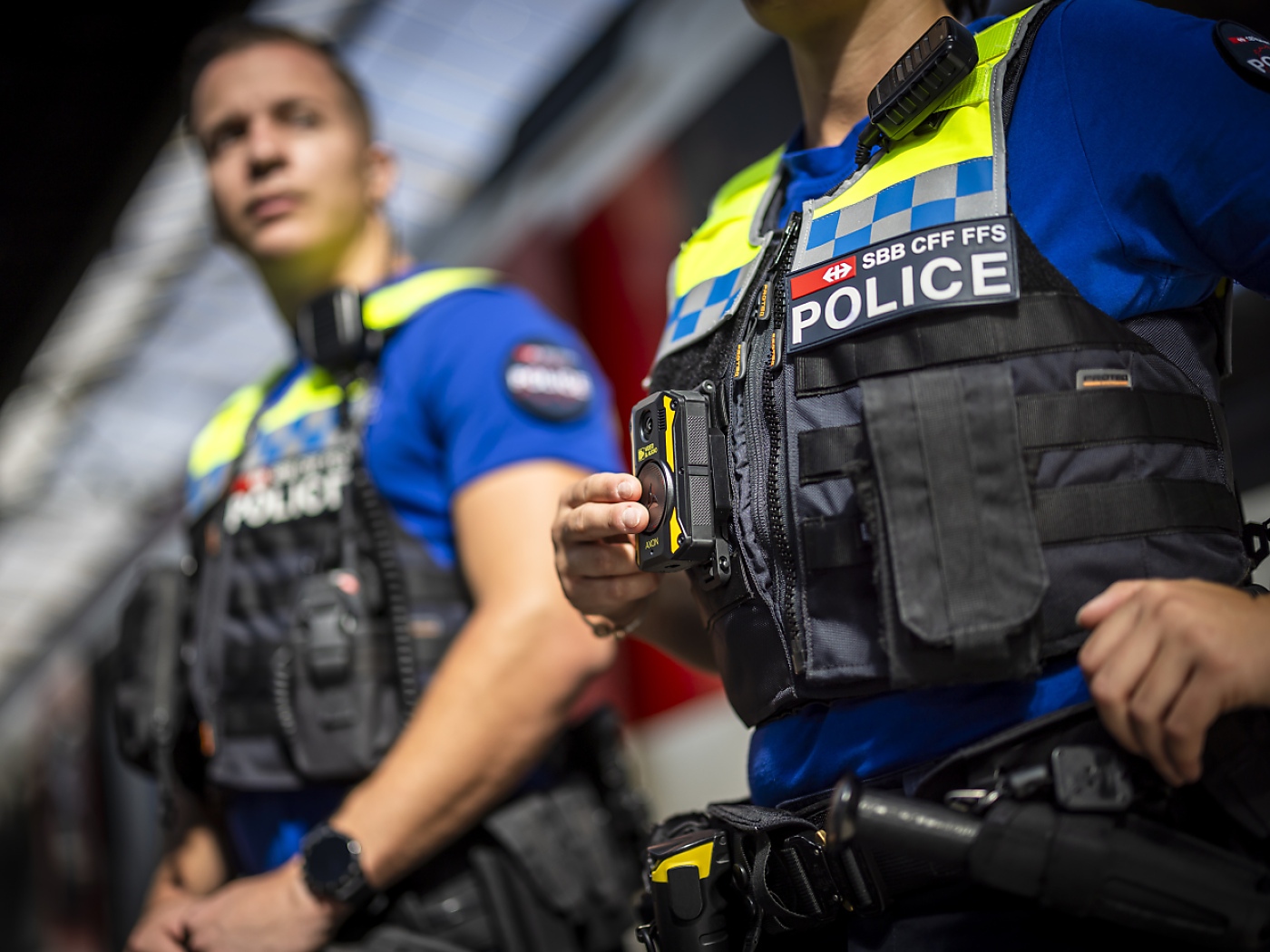
Swiss transport police officers are now on patrol with bodycams

From this Sunday, Swiss Federal Railways (SBB) transport police officers will be patrolling stations and trains in Switzerland with bodycams. Each patrol will be equipped with at least one body-worn video camera. This is intended to have a de-escalating effect.
+ Get the most important news from Switzerland in your inbox
The bodycams record wide-angle video images and sound – but not continuously. According to SBB, the transport police officers trigger the recording “on an operational basis”. They announce the activation of the camera verbally. When the camera is activated, three front lights flash red and a signal tone sounds.
SBB procured a total of 100 bodycams, which cost around CHF100,000 ($118,000). How many bodycams are used each day depends on the situation, said SBB spokesman Reto Schärli on request. More than 200 police officers from the transport police are deployed throughout Switzerland.
+ Bodycams on trains: will they keep trouble off the rails?
According to Schärli, the aim is to increase the safety of customers and SBB employees. The security situation on trains and in stations is stable. However, verbal aggression and conflicts have become more serious. The presence of police officers with bodycams could help to de-escalate conflicts and record incidents as evidence.
According to SBB, people who are to be checked can also request the activation of the bodycam. According to SBB, clear data protection regulations apply. The recorded video data is stored on the railway company’s servers in Switzerland. Only specialists from the transport police have access to the recordings for evidence purposes.
More
Several police forces in various cantons already have such cameras. Zurich city police introduced them in July. Police officers in Bern have been wearing such cameras since 2021. However, the use of bodycams is not uncontroversial. In Basel, the parliament narrowly rejected a proposal to procure them last November.
Translated from German by DeepL/jdp.
This news story has been written and carefully fact-checked by an external editorial team. At SWI swissinfo.ch we select the most relevant news for an international audience and use automatic translation tools such as DeepL to translate it into English. Providing you with automatically translated news gives us the time to write more in-depth articles.
If you want to know more about how we work, have a look here, if you want to learn more about how we use technology, click here, and if you have feedback on this news story please write to english@swissinfo.ch.

In compliance with the JTI standards
More: SWI swissinfo.ch certified by the Journalism Trust Initiative


























You can find an overview of ongoing debates with our journalists here . Please join us!
If you want to start a conversation about a topic raised in this article or want to report factual errors, email us at english@swissinfo.ch.